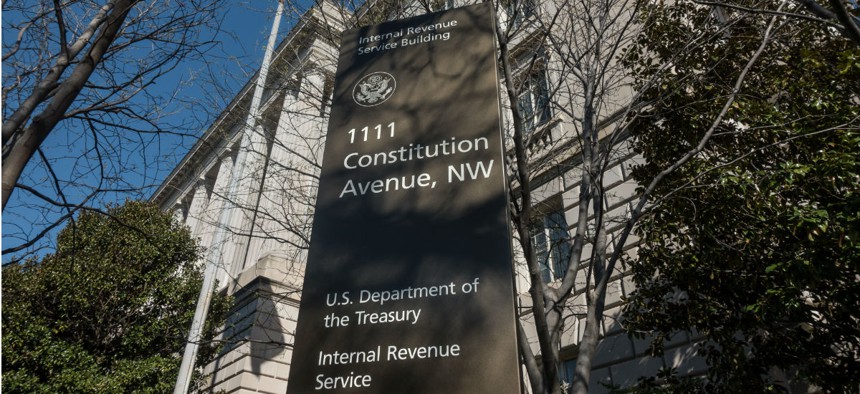Judge Warns Government on Anti-Deficiency Act Claims in Shutdown Lawsuits
Court sets a highly expedited schedule to hear case in the event the government shuts down again later this month.
A U.S. District Court judge said the Justice Department will have a “steep uphill battle” to defend the Treasury Department’s decision to recall thousands of Internal Revenue Service employees to process tax refunds during the partial government shutdown.
At a status hearing to discuss the next steps in three lawsuits challenging the legality of the Trump administration’s decision-making in forcing more than 400,000 federal employees to work without pay during the 35-day lapse in appropriations, U.S. District Judge Richard Leon said he would not prejudge the issues in the case, but noted his “serious concerns” with the government’s position on some issues.
“In the case of the thousands of IRS employees called back to issue tax refund checks, it seems to me that the government dodged a bullet [when the shutdown ended],” he said. “It would have had a very steep uphill battle on its hands. I won’t prejudge anything, but [if the government shuts down later this month] they should address this issue very carefully and very completely.”
Leon also suggested that the Justice Department may not be on the strongest legal footing in defending against claims that some agencies deny employees their due process rights by blocking feds’ access to outside employment due to ethics rules.
“[The government’s previous explanation] is not a satisfactory assessment,” Leon said. “The record on this point needs to be more fully developed with regard to future [preliminary injunctions] and other pleadings. In future shutdowns, injunctive relief could make a lot of sense, although I reserve judgment.”
Much of the hearing was devoted to establishing a schedule for filings and a hearing on whether to prevent the government from forcing employees to work without pay, given the possibility that lawmakers may not reach a deal to keep the government open once the current continuing resolution expires Feb. 15. Leon tentatively set an expedited schedule that, in the event of another shutdown, hearings on a preliminary injunction would occur on Feb. 22, noting that federal workers are due to receive paychecks on that day.
But Daniel Schwei, an attorney representing the Trump administration, suggested arguments did not have to occur so swiftly after a lapse in appropriations begins.
“My understanding as of today is that employees will not miss a paycheck on the 22nd,” Schwei said. “Much like the last shutdown . . . any possible shutdown would begin at the end of the pay period . . . so employees would not miss a paycheck until two weeks after.”
Leon suggested Schwei confirm the details with the Office of Personnel Management and send a letter to all parties, but seemed to lean toward his original schedule regardless.
“I think it is in everyone’s best interest to err on the side of acceleration,” he said. “Plus, it’s not like you’re all starting from scratch [with these legal briefs]. You said yourself you were already working on the IRS issue . . . At most you may have some work left to do on establishing the record on some issues.”
Leon said that if Congress and President Trump reach a deal to keep the government open beyond the Feb. 15 funding deadline, the Feb. 22 hearing would be converted to another status conference to discuss next steps.
Paras Shah, an attorney representing the National Treasury Employees Union, said after the hearing that the union would continue to pursue its legal challenge—that the Trump administration has violated the Anti-Deficiency Act with an overly broad reading of exceptions laid out by decades-old Justice Department legal opinions.
“If a deal is reached, we still expect this to continue,” he said. “Once the hearing on the 22nd is converted to a status conference, we plan to ask the judge to proceed to the merits on our legal challenge.”
Although lawsuits related to the legality of previous shutdowns were rendered moot by the government reopening, Shah said this case should fall under the “capable of repetition, yet evading review” legal standard, which allows courts to hear cases when disputes have a short shelf life, but have a high probability of recurring.




